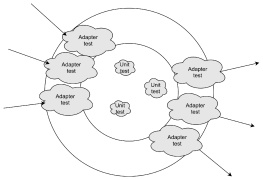Marcus Matthias Keupp - Defense Economics: An Institutional Perspective
Here you can read online Marcus Matthias Keupp - Defense Economics: An Institutional Perspective full text of the book (entire story) in english for free. Download pdf and epub, get meaning, cover and reviews about this ebook. publisher: Springer International Publishing, genre: Politics. Description of the work, (preface) as well as reviews are available. Best literature library LitArk.com created for fans of good reading and offers a wide selection of genres:
Romance novel
Science fiction
Adventure
Detective
Science
History
Home and family
Prose
Art
Politics
Computer
Non-fiction
Religion
Business
Children
Humor
Choose a favorite category and find really read worthwhile books. Enjoy immersion in the world of imagination, feel the emotions of the characters or learn something new for yourself, make an fascinating discovery.
- Book:Defense Economics: An Institutional Perspective
- Author:
- Publisher:Springer International Publishing
- Genre:
- Rating:5 / 5
- Favourites:Add to favourites
- Your mark:
- 100
- 1
- 2
- 3
- 4
- 5
Defense Economics: An Institutional Perspective: summary, description and annotation
We offer to read an annotation, description, summary or preface (depends on what the author of the book "Defense Economics: An Institutional Perspective" wrote himself). If you haven't found the necessary information about the book — write in the comments, we will try to find it.
Defense Economics: An Institutional Perspective — read online for free the complete book (whole text) full work
Below is the text of the book, divided by pages. System saving the place of the last page read, allows you to conveniently read the book "Defense Economics: An Institutional Perspective" online for free, without having to search again every time where you left off. Put a bookmark, and you can go to the page where you finished reading at any time.
Font size:
Interval:
Bookmark:


Translation from the language edition: Militrkonomie by Marcus Matthias Keupp, Springer Fachmedien Wiesbaden, ein Teil von Springer Nature 2019. Published by Springer Fachmedien Wiesbaden GmbH, ein Teil von Springer Nature. All Rights Reserved.
This Springer imprint is published by the registered company Springer Nature Switzerland AG
The registered company address is: Gewerbestrasse 11, 6330 Cham, Switzerland
In contriving any system of government, and fixing the several checks and controuls of the constitution, every man ought to be supposed a knave, and to have no other end, in all his actions, than private interest. By this interest we must govern him, and, by means of it, make him, notwithstanding his insatiable avarice and ambition, co-operate to public good.
David Hume
A new scientific truth does not generally triumph by persuading its opponents and getting them to admit their errors, but rather by its opponents gradually dying out and giving way to a new generation that is raised on it.
Max Planck
This book is the international edition of a volume that first appeared in 2019, in German and French. The idea behind it is to offer an alternative view on defense economics by grounding the subject in institutional theory and the Austrian school. This book features the central idea that all economic problems in a military organization have institutional causes.
There is a dearth of such perspectives in contemporary defense economics research. Few perspectives put a hard truth at the center of their analysis: Contemporary armed forces are not-for-profit organizations controlled by state bureaucracies. These exert their control by operating a planned economy system that allocates a fiscal commons (the defense budget) to the different branches of the armed forces. In order to finance operations and fund investments, a complex interaction between political decision-makers, the private industry, state bureaucracy, and the military staff determines how armed forces may partition and spend these funds. What could possibly go wrong?
The author holds the chair of defense economics at the Military Academy at the Swiss Federal Institute of Technology Zurich. However, this book is not about the Swiss Armed Forces. The economic analysis treats defense economics in a generalizable way, without delving into the organizational depths of any specific armed force. It emphasizes that the economic problems described here exist in any armed force in which a state bureaucracy exercises economic control. Consequently, all statements in this book represent solely the author's opinions and analyses; in particular, they do not constitute an official communication from the Swiss Armed Forces or the Federal Department of Defense, Civil Protection, and Sport.
I have completely reviewed and revised for an international audience. I thank Holly Cogliati and Kilian Cuche for their help with editing and proofreading. All the comments received from Renaud Bellais, Fabian Muhly, Dimitri Percia David, Mauro Mantovani, and Daniel Ltsch helped to improve prior versions of this manuscript. Many thanks also go to Christian Rauscher and Nikos Chtouris, from Springer Nature, for making this edition possible.
Finally, I must thank the many staff officers and career officer candidates I met and taught at the Military Academy, all of whom offered their views of and insights into actual military organizations. Their comments and discussions greatly helped me shape this book. Finally, I thank the commander of the Military Academy, Brigadier General Peter C. Stocker, for all his support during the writing of this work.
For the original works, see Keupp MM (2019) Militrkonomie and conomie militaire, both published by SpringerGabler, Wiesbaden.
Quia parvus error in principio magnus est in fine
Contemporary military organizations are anything but private companies. Both military and civilian bureaucracies who do not function according to free-market principles administer them. Quite the contrary: As these bureaucracies control all economic activity in the armed forces, a planned economy system is established. Any economic analysis that ignores this fundamental problem not only leads to false conclusions, but also to irrelevant policy recommendations.
From the early Middle Ages to the age of absolutism , armed forces were not an element of the nation state; rather, they were organized and financed in a decentral and private manner (Potter ). In the feudal system , a feudal lord distributed, among his vassals, land that they could exploit. In return, the vassals provided military strength for their lord in times of war. Although the returns from their possessions were for the vassals to keep, they had to finance their personal military equipment (sword, horse, armor) and recruit combatants from their local labor force .
Private military contractors , such as the Italian
Font size:
Interval:
Bookmark:
Similar books «Defense Economics: An Institutional Perspective»
Look at similar books to Defense Economics: An Institutional Perspective. We have selected literature similar in name and meaning in the hope of providing readers with more options to find new, interesting, not yet read works.
Discussion, reviews of the book Defense Economics: An Institutional Perspective and just readers' own opinions. Leave your comments, write what you think about the work, its meaning or the main characters. Specify what exactly you liked and what you didn't like, and why you think so.













